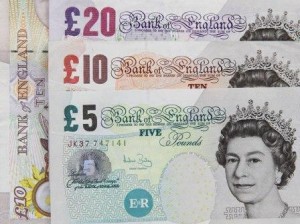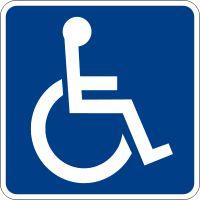
UK Travellers FAQ outlines a number of popular and frequently asked questions travellers to the UK have. The guide below gives further information and access to further resources for visitors. The questions and the subsequent answers along with links to articles and detailed resources available to further assist visitors are a useful may for visitors learning more about the requirements to enter the UK and the paperwork needed. Visitors can also learn more about practical information needed once they arrive in the UK.
Travellers Frequently Asked Questions
Coming To The UK
During Your Visit
Coming To The UK
1. What documents are needed to enter the UK?
You are required to have a valid passport or an official document (i.e. travel document) that will establish your identity & nationality. See:
2. Does the UK require visas for entry?
If you are not either a citizen of the UK or European Economic Area (EEA), you may need to ensure you get a valid visa to enter the UK. See: UK Visas for more information.
3. What are the customs allowance rules & limits?
There are different allowances on items you can bring in to the UK such as alcohol, tobacco, wine & spirits, depending on whether you enter the UK from another country in the EU or outside the EU. If you enter the UK from within the EU you can bring in as much alcohol and tobacco as you wish provided it is for personal use. If you enter from outside the EU there are allowances and limits that apply. See Customs Allowances for further details.
4. What goods are prohibited or restricted when entering the UK?
There are some goods such as counterfeit goods, weaponry and unlicensed drugs that are prohibited from being brought in to the UK. Other goods such as live animals and some types of plants are restricted and you need to ensure you have the appropriate licence to import them. For more information please see: Restricted Goods
5. Do I need private medical insurance when visiting the UK?
It is strongly recommended that all visitors to the UK arrange for full and comprehensive private medical insurance before they arrive in the UK & ensure the insurance is valid for the entire duration of their trips. Failure to have adequate medical insurance can mean very high medical bills if you require treatment. Visitors from the EEA are advised to also bring a European Health Insurance Card in addition to medical insurance.
6. Can pets be brought in to the UK?
Pets such as cats & dogs are allowed to enter the UK from certain countries via selected ports of entry. Animals may be required to be quarantined for six months at premises that are approved.
7. Where can get more information & resources on UK bookings & services?
You can find more information on UK bookings and services using our search engines & articles to find the following bookings & services:
Bookings:
Flights:
For Air Flights both short and long haul to worldwide destinations.
Hotels:
For Hotel Reservations for the UK and beyond, includes bookings for budget, mid range and luxury hotels.
Holidays & Breaks:
A range of holidays and UK Short Breaks are available to destinations across the UK.
Car Hire:
Find UK Car Rental deals and choose from a range of providers with pick and drop off points across the UK.
Resources
Travel Guides:
Find a range of UK Travel Guides to cities, towns and counties across the UK containing useful tourist information and travel information.
Travel Tips:
Read a range of Travellers Tips covering a range of areas offering useful tips and practical travel advice measures to assist travellers.
During Your Visit
8. Where can currency be exchanged?
There are a number of places where foreign currency can be exchanged in the UK, these include at banks, post offices, Bureau de Change kiosks in airports and city centres and at some hotels. See: UK Currency for further information.
9. Where can you get the best exchange rates?
Good rates can be had at outlets and merchants that do not charge commission for currency exchange. The post office currently does not charge commission on exchanging currency, there are online providers that also do not charge commission offering competitive rates. Beware of being charged to withdraw money at ATMs or when using your debit or credit cards (it is wise to check any charges before you start your journey). See: Currency Exchange for more details.
10. Where can credit and debit cards be used?
Credit Cards and Debit charges are widely accepted throughout the UK, although a few small shops may not accept them. Credit cards with Visa, MasterCard & American Express are widely accepted in the UK & their logos are usually shown at pay points. If you are not sure check with the retailer before you go to purchase.
11. Is the Euro currency accepted in the UK?
The UK currently uses the British Pound (£) as the currency and have not yet adopted the Euro. However there are a few retailers, services and hotels that may accept Euro notes, you are likely to be given change back in sterling. It should be noted that using Euros make incur a commission charge from retailers & service providers.
12. How do I claim back tax from shopping in the UK?
If you are a resident from outside of the European Union (EU), you may be eligible to reclaim Value Added Tax (VAT) on shopping purchases you make during your visit to the UK. There is a procedure that needs to be followed, to find out if you can claim see: VAT Refunds for UK Visitors for more details.
13. How much do commonly used items cost?
The cost of items you are likely to use on your visit varies depending on what items/services you use, the location you visit and the budget you have. The cost of everyday items is shown below, please note this is an approximation & can vary:
Hotel Breakfast: From £5 to £20
Sandwiches & Snacks: From £2 to £5
Lunch Meal: £15 to £40
Evening Meal: From £15 to £60
Soft Drinks: From 80 pence to £3.00
Pub Beers: From £2 to £4
Postcard Stamps: From: 50 pence
Single Public Transport tickets (Tube, Train, Bus & Tram): From £2
Cost of Attractions & Tickets:
Tourist Attractions: From Free to £40
Theatre Tickets: From £20 to £80
14. When are bank/public and school holidays?
England & Wales currently has 8 Bank Holidays in a year, with Scotland having 9 & Northern Ireland having 10. See Bank Holidays for dates of the bank holidays.
The school holidays are usually approx for 6 weeks beginning from mid July to early September, There are usually 2 weeks at Christmas and 2 to 3 weeks holidays at Easter. The schools also break for approx a week in the middle of October and the middle of February.
15. What is the UK weather like & when is the best time to visit?
The UK has an unpredictable climate that is rarely extreme. While it can drizzle & be overcast, it is seldom extreme and is relatively mild for the spring & summer periods. The relative lack of severe weather means visitors can enjoy a visit to the UK at most times of the year. The spring and summer are favourite times for visitors to come & for locals to holiday, the weather is usually mild, sometimes fairly hot temperatures can occur. It is also in the summer when visitors can benefit from long summer evening when the light may stay until 9pm. For more information see: UK Weather for information on the seasons and average temperature.
16. What is the electricity voltage & what plugs are used?
Electrical appliances in the UK use 240V 50Hz, with plugs usually having 3 pins. Visitors from overseas using different systems can get both plug socket adaptors and power transformers that are available at airports and many shops across the UK.
17. Are local SIM cards available to use on mobile phones?
Visitors can purchase Pay As You Go SIM cards that can be used on mobile phone instruments. Before you start your trip you need to check with your mobile phone provider if your mobile phone can accept SIM cards from other networks. Pay As You Go SIM cards are widely available from many electrical & mobile retailers.
18. What about internet access?
Many hotels provide internet access points either in hotel rooms or in designated areas in the hotel. Internet Cafes provide a cost effective way to get online across the UK, the charge is usually around £1 for one hours surfing. If you have a laptop/PDA, wireless connection points can be used to get online. It is recommended you check if there are any download limits/restrictions to any internet connection you use, the charges for going over the limits especially when overseas can be very high.
19. What are the provisions for seeing a Doctor?
If visitors to the UK are taken ill during their stay they are entitled to treatment in Accident & Emergency Departments of hospitals in the National Health Service (NHS). If you need to stay in hospital as either an in patient or out patient you may be required to pay for this. There are criteria used to determine who needs to pay & who is covered. It is highly recommended visitors come to the UK with full private medical insurance to ensure treatment should they need it, peace of mind & avoid having to pay large medical bills. For more information please see: Medical Services
20. What are the requirements on working in the UK?
The correct procedures need to be followed for those seeking to work in the UK. The UK Home Office has rules and requirements to determine who is eligible to work in the UK. For more information please see: Working in the UK.
UK travellers FAQ offers a useful resource where visitors to the UK can get more information on travel & holiday related queries they may have regarding the UK. Visitors to the UK that have done their research becoming more knowledgeable on the UK, what to expect, where to get more information & help may find it a great benefit when they come to visit.
Disclaimer: The information given in on this website is given in good faith and to the best of our knowledge. If there are any discrepancies in no way do we intend to mislead. Important travel details and arrangements should be confirmed and verified with the relevant authorities.




